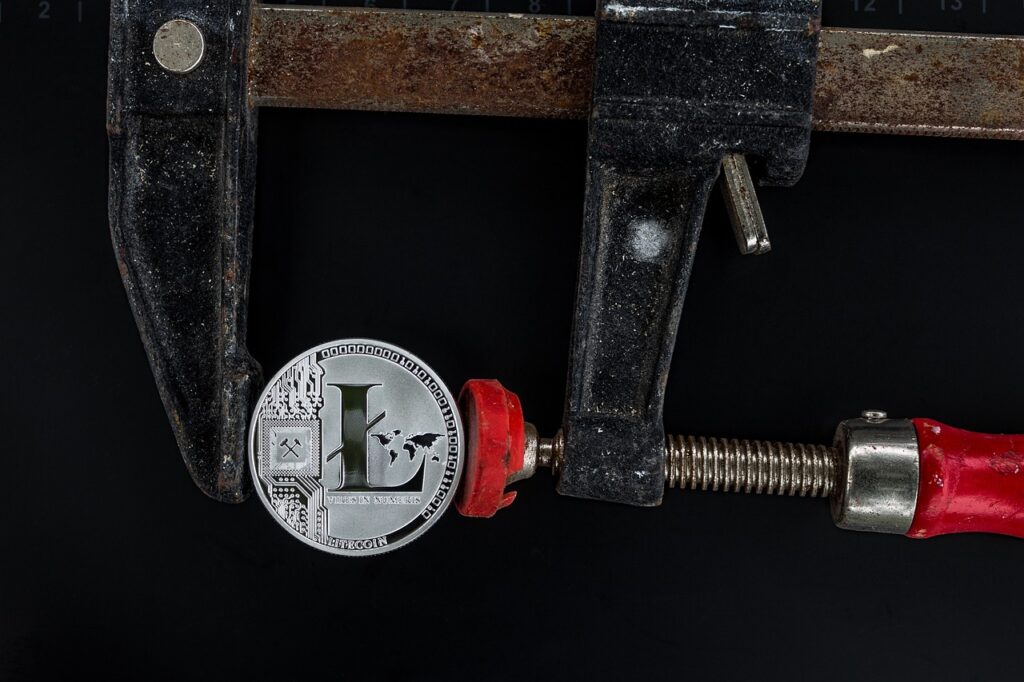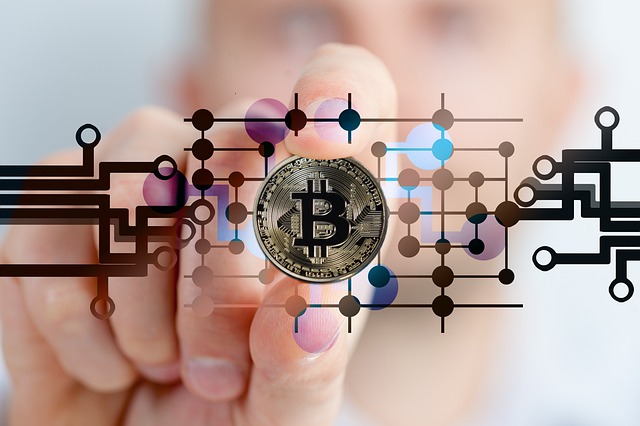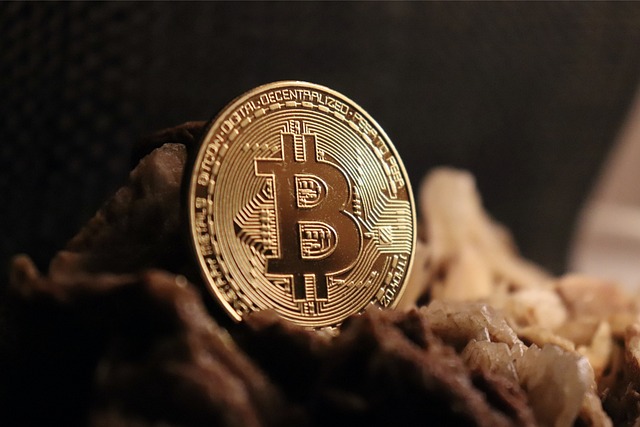The Decentralized Finance System: How It Works
The Decentralized Finance System: How It Works

Understanding the Basics of Decentralized Finance
Decentralized finance, commonly referred to as DeFi, has emerged as a disruptive force in the financial world. Unlike traditional centralized systems where financial intermediaries play a crucial role, DeFi operates on a peer-to-peer basis using blockchain technology. In simple terms, DeFi aims to provide an open and transparent financial infrastructure that eliminates the need for intermediaries and allows users to have complete control over their assets.
At the heart of DeFi lies the concept of smart contracts. These self-executing contracts are coded on a blockchain and automatically execute predefined actions when certain conditions are met. By removing the need for intermediaries like banks or brokers, smart contracts enable users to engage in various financial activities, such as lending and borrowing, without relying on a centralized authority. This not only increases efficiency but also reduces costs, making financial services more accessible to a wider range of individuals.

The Rise of Blockchain Technology in Financial Systems
Blockchain technology has been making waves in financial systems worldwide, revolutionizing the way transactions are recorded and verified. Traditional financial institutions have been quick to recognize its potential and have embraced this decentralized technology. With blockchain, transactions are securely logged on a distributed ledger, eliminating the need for a centralized authority such as a bank. This not only reduces the cost and time associated with transferring funds but also enables greater transparency and immutability in financial transactions.
One key benefit of blockchain technology in financial systems is its potential to enhance security.

Exploring the Advantages of Decentralized Finance
Decentralized finance, or DeFi, has gained significant attention in recent years due to its numerous advantages. One key advantage is the elimination of middlemen, such as banks or financial institutions, in financial transactions. In traditional finance, intermediaries play a crucial role in facilitating transactions, but they often come with hefty fees and delays. With DeFi, these middlemen are bypassed, allowing for faster and more cost-effective transactions. This not only provides convenience for users but also promotes financial inclusivity by enabling anyone with an internet connection to participate in the financial system.
Another advantage of decentralized finance is the increased security and transparency it offers. Traditional financial systems are vulnerable to hacking and fraud, with personal and financial information at risk. With DeFi, transactions are recorded on a blockchain, a secure and immutable digital ledger. This transparency ensures that every transaction is traceable, reducing the chances of fraud and providing a higher level of trust in financial transactions. Additionally, smart contracts, which are self-executing agreements on the blockchain, eliminate the need for intermediaries, reducing the risk of human error and manipulation. Overall, the advantages of decentralized finance make it an appealing alternative to traditional financial systems, offering efficiency, accessibility, security, and transparency to users.
Key Components of a Decentralized Financial System
Decentralized finance (DeFi) is revolutionizing the traditional financial system by eliminating the need for intermediaries and putting the power back in the hands of the users. To understand the key components of a decentralized financial system, we must delve into the fundamental building blocks that make this system possible.
At the core of DeFi is blockchain technology, a distributed ledger that records transactions across multiple computers. This peer-to-peer network ensures transparency, immutability, and security of the financial data. Smart contracts, another crucial component, automate the execution of agreements without the need for intermediaries. These self-executing contracts are programmed with predefined rules and conditions, eliminating the potential for human error or manipulation. Combined, these components establish a decentralized infrastructure that promotes trust, efficiency, and accessibility in the financial ecosystem.
A Closer Look at Smart Contracts and Their Role in DeFi
Smart contracts are the backbone of decentralized finance (DeFi) systems. These computer programs automatically execute and enforce agreements without needing intermediaries. By utilizing blockchain technology, smart contracts ensure that transactions are transparent, secure, and free from manipulation. They eliminate the need for trust by providing a decentralized and auditable record of all interactions. Smart contracts enable various financial activities, such as lending, borrowing, trading, and investment, to be carried out seamlessly and efficiently on decentralized platforms.
In DeFi, smart contracts enable the creation of decentralized applications (DApps) that provide financial services to users. DApps can be built on public blockchains like Ethereum, allowing anyone with an internet connection to access and use them. These applications automate complex financial processes, enabling users to trade assets, borrow and lend funds, and earn interest, all without the need for traditional financial intermediaries. Smart contracts make these DApps self-executing and self-enforcing, ensuring that transactions occur as intended without relying on a centralized authority. With the role smart contracts play in DeFi, the potential for innovation and disruption in the traditional financial sector is immense.
The Role of Cryptocurrencies in Decentralized Finance
Cryptocurrencies play a vital role in decentralized finance (DeFi), revolutionizing traditional financial systems. By utilizing blockchain technology, cryptocurrencies enable the creation of transparent, trustless, and decentralized financial products and services. Unlike traditional fiat currencies, cryptocurrencies are not controlled by any central authority, such as a government or a financial institution. Instead, they operate on a peer-to-peer network, allowing individuals to have direct control over their financial transactions without relying on intermediaries.
One of the main advantages of cryptocurrencies in DeFi is their potential for seamless and efficient cross-border transactions. With traditional financial systems, sending money internationally often involves high fees and long processing times. However, cryptocurrencies eliminate these barriers by allowing individuals to transfer funds directly to anyone, anywhere in the world, with minimal costs and faster settlement times. This opens up new opportunities for global financial inclusion, empowering individuals who may not have access to traditional banking services but have a smartphone and internet connection. Additionally, cryptocurrencies enable individuals to maintain control over their own funds, reducing the risk of government restrictions or confiscation.
The Mechanisms Behind Decentralized Lending and Borrowing
Decentralized lending and borrowing, a key component of the growing world of decentralized finance (DeFi), operates on a fundamentally different mechanism compared to traditional lending systems. Instead of relying on centralized intermediaries such as banks or financial institutions, decentralized lending platforms leverage blockchain technology to create a peer-to-peer lending environment.

In this decentralized model, borrowers can access loans directly from lenders without the need for a middleman. These lending platforms utilize smart contracts, self-executing agreements powered by blockchain, to automate the lending process. By eliminating the need for intermediaries, decentralized lending not only reduces costs but also increases accessibility and transparency. Borrowers can collateralize their digital assets and use them as security, allowing lenders to lend funds based on the value of the collateral. Meanwhile, lenders can earn interest on their idle crypto assets by providing liquidity to the lending pools. Overall, decentralized lending and borrowing not only revolutionize traditional lending systems but also democratize access to financial services.
Unraveling the World of Decentralized Exchanges
Decentralized exchanges (DEXs) are revolutionizing the world of trading by providing a more inclusive and transparent platform. Unlike traditional centralized exchanges, DEXs operate without a central intermediary, giving users full control over their funds and trades. This decentralized approach eliminates the need for trust in a third party and reduces the risk of hacks or thefts.
One of the key advantages of DEXs is their ability to enhance privacy. Traditional exchanges typically require users to provide personal information and undergo lengthy verification processes, compromising confidentiality. In contrast, DEXs allow users to trade directly from their wallet, without the need for disclosing personal details. This anonymity has gained popularity amongst crypto enthusiasts seeking to protect their financial privacy and maintain control over their own assets. Additionally, DEXs operate on a peer-to-peer basis, facilitating direct transactions between individuals, thereby reducing the reliance on costly intermediaries and minimizing transaction fees.
Security Measures in Decentralized Finance Systems
One of the top concerns surrounding decentralized finance (DeFi) systems is the issue of security. With the increased use of blockchain technology and the handling of financial transactions, it becomes crucial to ensure that user data and funds are protected from potential threats. To address these concerns, various security measures have been implemented in DeFi systems.
One fundamental security measure is the use of multifactor authentication (MFA) for user accounts. With MFA, users are required to provide multiple forms of verification, such as a password, a personal identification number (PIN), or even a fingerprint scan, to access their accounts. This ensures that even if one form of authentication is compromised, there are additional layers of protection in place. Additionally, encryption techniques play a significant role in securing user data. By encrypting sensitive information, such as private keys and transaction data, it becomes extremely difficult for unauthorized individuals to gain access to this information. These encryption methods make it possible to protect user funds and prevent any fraudulent activities.
• Multifactor authentication (MFA) is used to provide multiple forms of verification for user accounts, such as passwords, PINs, or fingerprint scans.
• MFA adds an extra layer of protection in case one form of authentication is compromised.
• Encryption techniques are utilized to secure sensitive information like private keys and transaction data.
• Encryption makes it difficult for unauthorized individuals to access this information.
• The use of encryption methods helps protect user funds and prevent fraudulent activities.
The Future of Decentralized Finance and Its Potential Impact
The future of decentralized finance holds immense potential and is expected to revolutionize the traditional financial systems we are accustomed to. With the rise of blockchain technology and the growing popularity of cryptocurrencies, decentralized finance, also known as DeFi, is set to disrupt various sectors, including banking, investments, and lending.
One of the key impacts of decentralized finance is the ability to eliminate intermediaries and promote greater financial inclusion. By utilizing blockchain technology, individuals have the opportunity to access financial services regardless of their geographic location or socioeconomic status. This opens up a world of possibilities for the unbanked population, who often face barriers in accessing loans, credit, and investment opportunities. Additionally, decentralized finance enables peer-to-peer transactions, allowing individuals to interact directly without the need for traditional financial institutions. This enhances transparency, reduces costs, and fosters a more inclusive financial system.
What is decentralized finance?
Decentralized finance, or DeFi, refers to a financial system that operates on blockchain technology without the need for intermediaries like banks or traditional financial institutions. It aims to provide open, transparent, and accessible financial services to everyone.
How does blockchain technology play a role in decentralized finance?
Blockchain technology is the underlying foundation of decentralized finance. It enables secure and transparent transactions by recording them on a decentralized ledger. This eliminates the need for intermediaries, reduces costs, and increases efficiency.
What are the advantages of decentralized finance?
Decentralized finance offers several advantages. It provides financial services to the unbanked population, allows for greater financial inclusivity, reduces the risk of fraud and censorship, and offers improved privacy and control over personal finances.
What are the key components of a decentralized financial system?
A decentralized financial system consists of various components like smart contracts, cryptocurrencies, decentralized exchanges, and decentralized lending and borrowing platforms. These components work together to create a decentralized ecosystem for financial transactions.
What are smart contracts and how do they relate to DeFi?
Smart contracts are self-executing contracts with predefined rules and conditions stored on a blockchain. They automatically execute transactions when the conditions are met, eliminating the need for intermediaries. In DeFi, smart contracts play a crucial role in automating financial transactions and enabling decentralized applications.
How do cryptocurrencies fit into decentralized finance?
Cryptocurrencies are digital assets that operate on blockchain networks. They are used as a medium of exchange, store of value, and unit of account in decentralized finance. Cryptocurrencies enable seamless and borderless transactions, offering increased accessibility and financial freedom.
How does decentralized lending and borrowing work?
Decentralized lending and borrowing platforms allow individuals to lend or borrow funds directly from other users without the involvement of intermediaries. These platforms use smart contracts to automate the lending process, determine interest rates, and ensure repayment.
What are decentralized exchanges and why are they important?
Decentralized exchanges (DEXs) are platforms that facilitate peer-to-peer trading of cryptocurrencies without relying on a central authority. They provide users with more control over their funds, increased privacy, and reduced counterparty risk compared to traditional centralized exchanges.
How is security ensured in decentralized finance systems?
Security in decentralized finance systems is maintained through various measures such as encryption, multi-factor authentication, and the use of secure smart contracts. Additionally, decentralized finance platforms undergo rigorous audits and security testing to identify and mitigate vulnerabilities.
What is the future of decentralized finance and how could it impact the financial industry?
The future of decentralized finance is promising. It has the potential to disrupt the traditional financial industry by providing more accessible, inclusive, and efficient financial services. DeFi can empower individuals, reduce reliance on traditional intermediaries, and foster innovation in the financial sector.
Todays Featured Product:
Buy, exchange and grow your crypto securely with a Ledger hardware wallet, combined with the Ledger Live app. It’s never been easier to keep your crypto safe and accessible. Buy direct from Ledger.com and get todays Special Offers Here.




